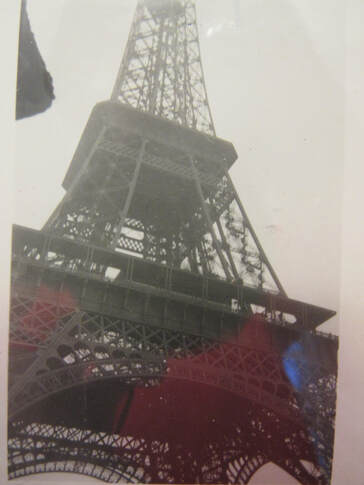 I would have made a terrible soldier during the American Revolution. I can imagine staring in disbelief when my infantry commander told me to stand upright, shoulder-to-shoulder with the other soldiers, march out into an open field in a straight line, the British doing the same, and then, when within 30 to 50 yards of each other, shoot a muzzleloader at the soldier across from me, after which I was to reload while the other side fired back. I just wouldn’t have done it. I’m no coward but I can recognize a low percentage of survival. I would have suggested hiding behind a tree or something. It would have been the same at Gettysburg, when General Lee lined his soldiers up and told them to march a mile across open fields to attack Union troops crouched behind a stone wall, all the while under cannon fire. It looked noble and impressive in the movie Gettysburg, but I ain’t agonna do it. Or maybe I would have; it would take being there to know the truth. Either way, to die needlessly is a travesty hard to accept. In reading about the First World War, I found a story of when a great number of soldiers were told to attack and then refused. The Battle of Verdun, in 1916, was a battle of the French Army versus the German Army in a relatively small area of land northeast of Paris. The Army was first commanded by Marshall Philippe Petain, then by General Robert Nivelle. Fought from February 21st to the 18th of December, it was the longest battle of World War I (302 days) and one of the most costly in human history. There were about 377,000 (163,000 dead) French casualties, while the Germans had about 337,000 (143,000 dead) casualties. It was eventually a French victory because the Germans gave up first, and the battle came to symbolize the determination of the French Army. There were, however, lasting consequences. Fighting in such a small area devastated the land, resulting in miserable conditions for troops on both sides. Rain and constant artillery bombardments turned the clay soil into a wasteland of mud full of debris and human remains; shell craters filled with water and soldiers risked drowning in them, not to mention the sodden trenches in which they lived. Forests were reduced to tangled piles of wood by artillery fire and eventually obliterated. The effect of the battle on many soldiers was profound and accounts of men breaking down with insanity and shell shock were common. There were many desertions. As much as Verdun has to tell, my story happens a few months later, in April of 1917. It was the memories of Verdun that brought about the disobedience in the battlefield. The situation was again northeast of Paris and was again the Germans versus the French, with the French now on the offensive. In briefing his troops before the battle, General Nivelle promised a war-winning decisive victory that would be accomplished in 48 hours and cost no more than 15,000 casualties. At the start, morale among the French troops was high and the initial fighting brought substantial gains. They were soon brought to a halt by the newly built and extremely strong defenses of the Hindenburg Line. Nivelle persisted with frontal assaults and by April 25th, the French had suffered nearly 135,000 casualties, including 30,000 dead. Nivelle continued the offensive, but on May 3rd, the 21st Division, which had been involved in some of the heaviest fighting at Verdun, refused orders to go into battle. They began what is called the French Army Mutinies. Within days, acts of “collective indiscipline” had spread to 54 army divisions (out of 113 total), while a record 27,000 French soldiers deserted. The vast majority of the mutineers were willing to defend their own lines, but refused to participate in offensive actions, indicating the level of distrust in the army leadership. The French offensive was suspended on May 9th. General Nivelle was removed and Marshall Petain again took over. Petain was more concerned with the improvement of the soldiers than in punishment for the mutinous actions. He set about addressing their needs and improving the morale by talking to the men, promising no more suicidal attacks, providing rest and leave for exhausted units, and moderating discipline. Other demands by the troops included better economic support for families at home, more regular periods of leave, and more liberty when away from combat. The soldiers basically felt that their lives were being disregarded by army leaders. Because of the low morale in more than half of the French Army, it took until the early months of 1918 for the French infantry to fully recover. Petain's strategy was to keep the line by using artillery units and wait for the arrival and deployment of the soldiers from the United States Army. He also waited for the coming of new and improved versions of the French tank, produced by Renault. Did the German Army take advantage of the situation and drive hard against the discouraged French troops? In one of the greatest lapses of military intelligence gathering of the war, the Germans didn’t even know about the internal strife. The mutinies were not reported in the press and were not publicly mentioned by the French military. The Germans did not learn of the French Army’s situation until after the war.
0 Comments
Leave a Reply. |
AuthorDon Willerton has been a reader all his life and yearns to write words like the authors he has read. He's working hard at it and invites others to share their experiences. |

 RSS Feed
RSS Feed